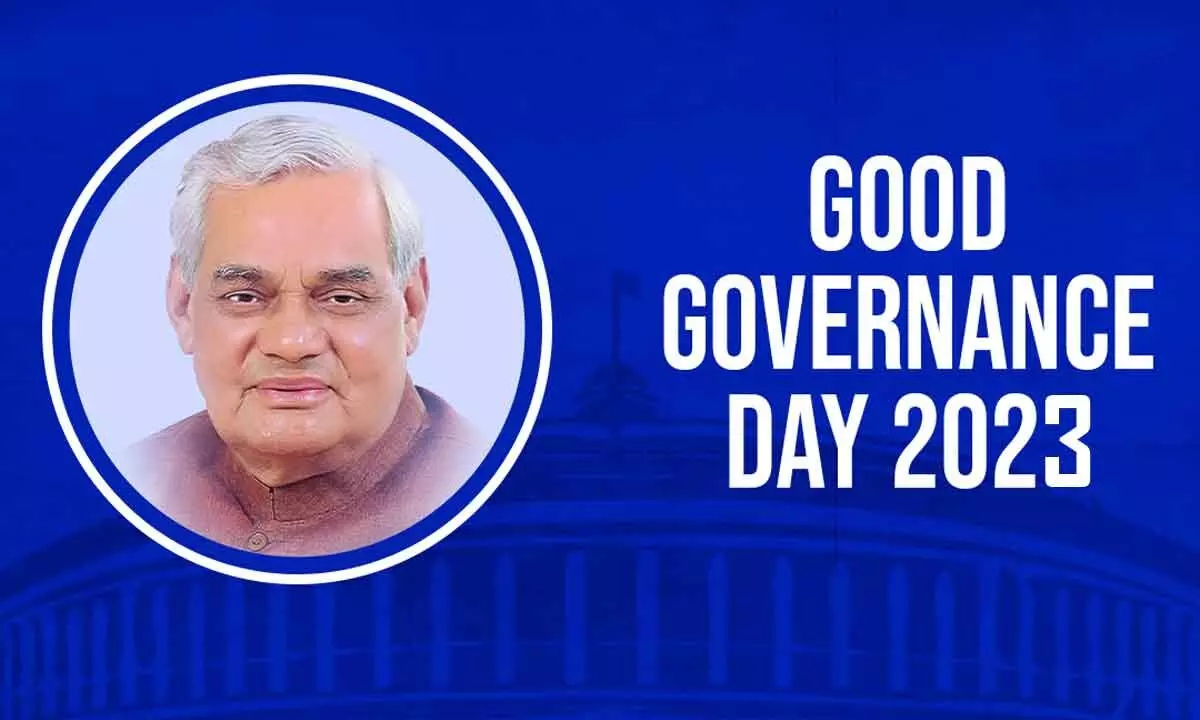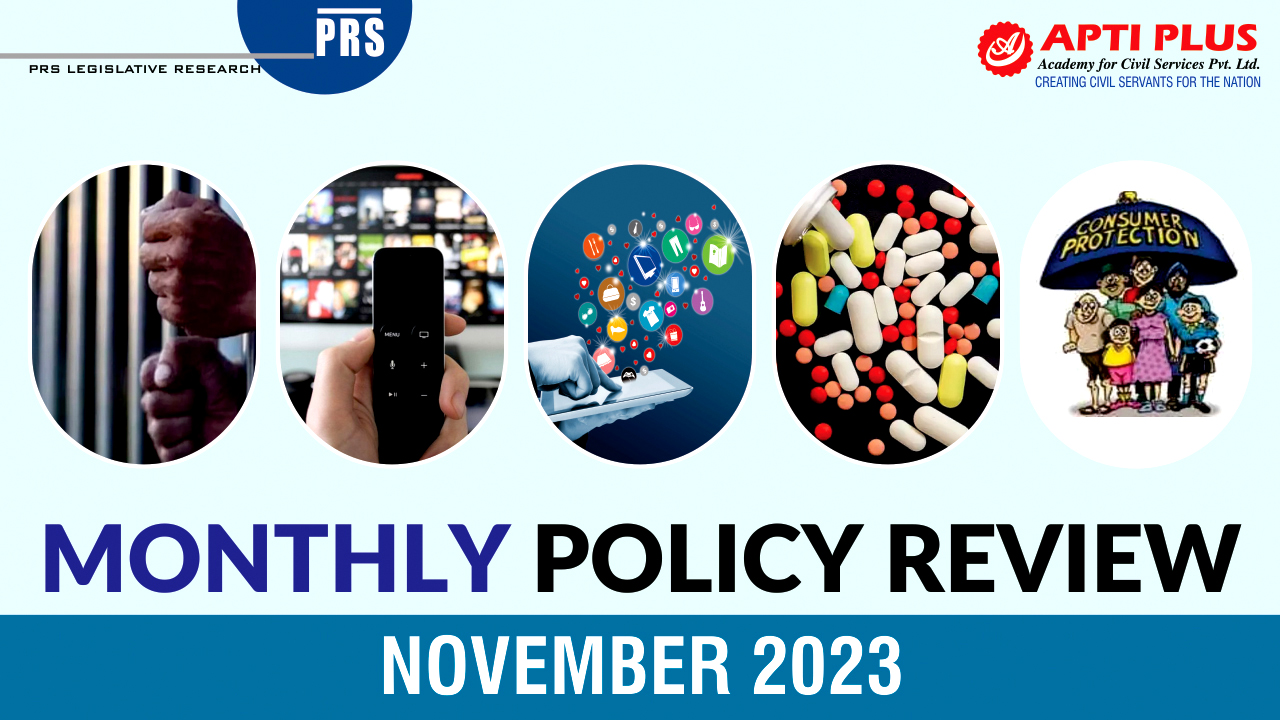Description

Copyright infringement not intended
Picture Courtesy: www.thehansindia.com
Context: Good Governance Day in India, observed on 25th December, commemorates the birth anniversary of former Prime Minister Atal Bihari Vajpayee, emphasizing the promotion and awareness of principles and practices of good governance essential for national development and welfare.
Details
- India celebrates Good Governance Day on 25th December every year to mark the birth anniversary of the former Prime Minister Atal Bihari Vajpayee. The day was first observed in 2014, to honour his legacy and inspire the citizens and the government to uphold the values and principles of good governance.
What is good governance and why is it important?
- Good governance is a broad concept that encompasses the effective, efficient, transparent, accountable, responsive and inclusive functioning of the government and its institutions. It implies the active participation and empowerment of the people, especially the marginalized and vulnerable sections of society, in the decision-making and implementation processes that affect their lives.
- Good governance is essential for national development and welfare, as it ensures that the public resources are utilized optimally and equitably, that the public services are delivered timely and satisfactorily, that the public policies are aligned with the national goals and aspirations, and that the public grievances are addressed promptly and fairly.
- Good governance also fosters a culture of trust, cooperation and harmony among the diverse groups and communities that make up the nation, as well as between the nation and its international partners. It enhances the reputation and credibility of the nation in the global arena and attracts more investments and opportunities for growth and prosperity.

How did Atal Bihari Vajpayee exemplify good governance?
- Atal Bihari Vajpayee was a statesman who led India with vision, wisdom, courage and compassion. He was a democrat who respected the constitution, the parliament, the judiciary and the media.
- He was a reformer who initiated several landmark policies and programs in various sectors such as infrastructure, education, health, agriculture, science and technology, defence, foreign affairs and social welfare.
- He was a consensus-builder who reached out to all sections of society, especially the minorities, the poor and the women.
- He was a peacemaker who pursued dialogue and diplomacy with India's neighbours and other countries while safeguarding India's sovereignty and security.
Notable achievements as Prime Minister include:
- Conducting nuclear tests in 1998 to establish India's nuclear deterrence capability.
- Launching the Golden Quadrilateral project to connect major cities by highways.
- Introducing the Sarva Shiksha Abhiyan to universalize elementary education.
- Implementing the Pradhan Mantri Gram Sadak Yojana to connect rural areas by roads.
- Establishing the Telecom Regulatory Authority of India to regulate and liberalize the telecom sector.
- Creating a separate Ministry of Disinvestment to facilitate privatization of public enterprises.
- Initiating the National Highways Development Project to upgrade national highways.
- Forming a coalition government with 23 parties under the banner of the National Democratic Alliance.
- Signing the Lahore Declaration with Pakistan to improve bilateral relations.
- Initiating a bus service between Delhi and Lahore to promote people-to-people contact.
- Declaring a unilateral ceasefire in Kashmir during Ramadan to facilitate peace talks.
- Hosting the historic Agra Summit with Pakistan's President Pervez Musharraf in 2001.
- Mobilizing international support for India after the 2001 Parliament attack by Pakistan-based terrorists.
- Launching Operation Parakram to deploy troops along the border with Pakistan in 2001-2002.
- Initiating a dialogue process with Pakistan in 2003 to resolve outstanding issues.
- Extending a hand of friendship to China during his visit in 2003.
- Signing a strategic partnership agreement with Russia in 2000.
- Strengthening ties with the US and other major powers.
- Supporting Afghanistan's reconstruction after the fall of the Taliban regime in 2001.
- Launching Chandrayaan-1, India's first lunar mission, in 2008

Conclusion
- Good Governance Day is an occasion to remember and pay tribute to Atal Bihari Vajpayee's life and legacy. It is also an opportunity to reflect on our roles and responsibilities as citizens and as members of various institutions that contribute to good governance.
Must Read Articles:
Good Governance: https://www.iasgyan.in/rstv/perspectivegood-governance#:~:text=Good%20Governance%20Day%20is%20celebrated,Prime%20Minister%20Atal%20Bihari%20Vajpayee.
|
PRACTICE QUESTION
Q. What fundamental principles constitute good governance, and how do they contribute to fostering societal development and inclusivity within a nation's framework?
|









